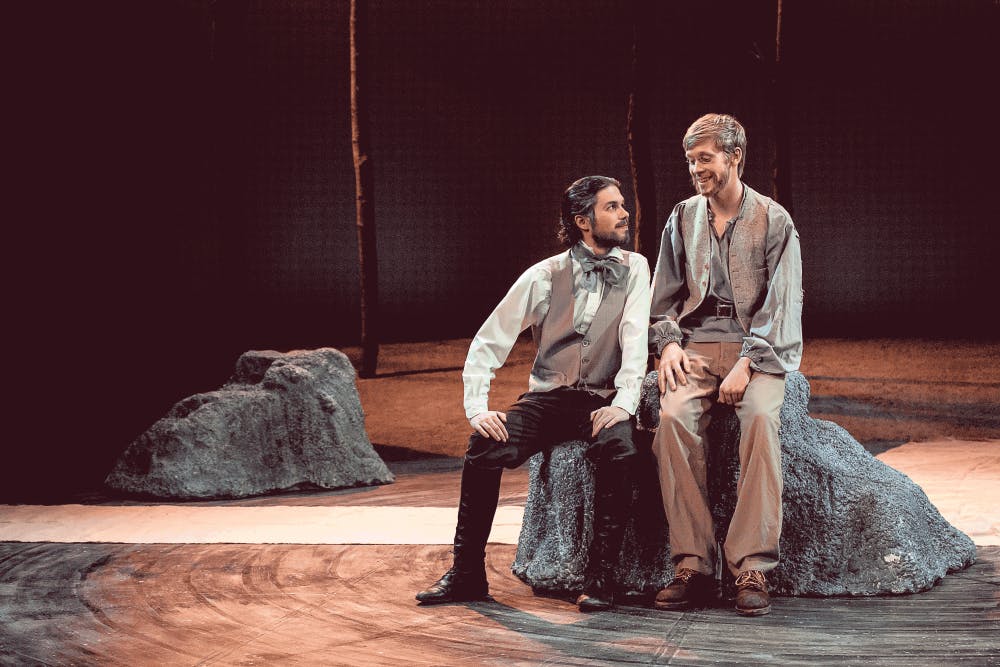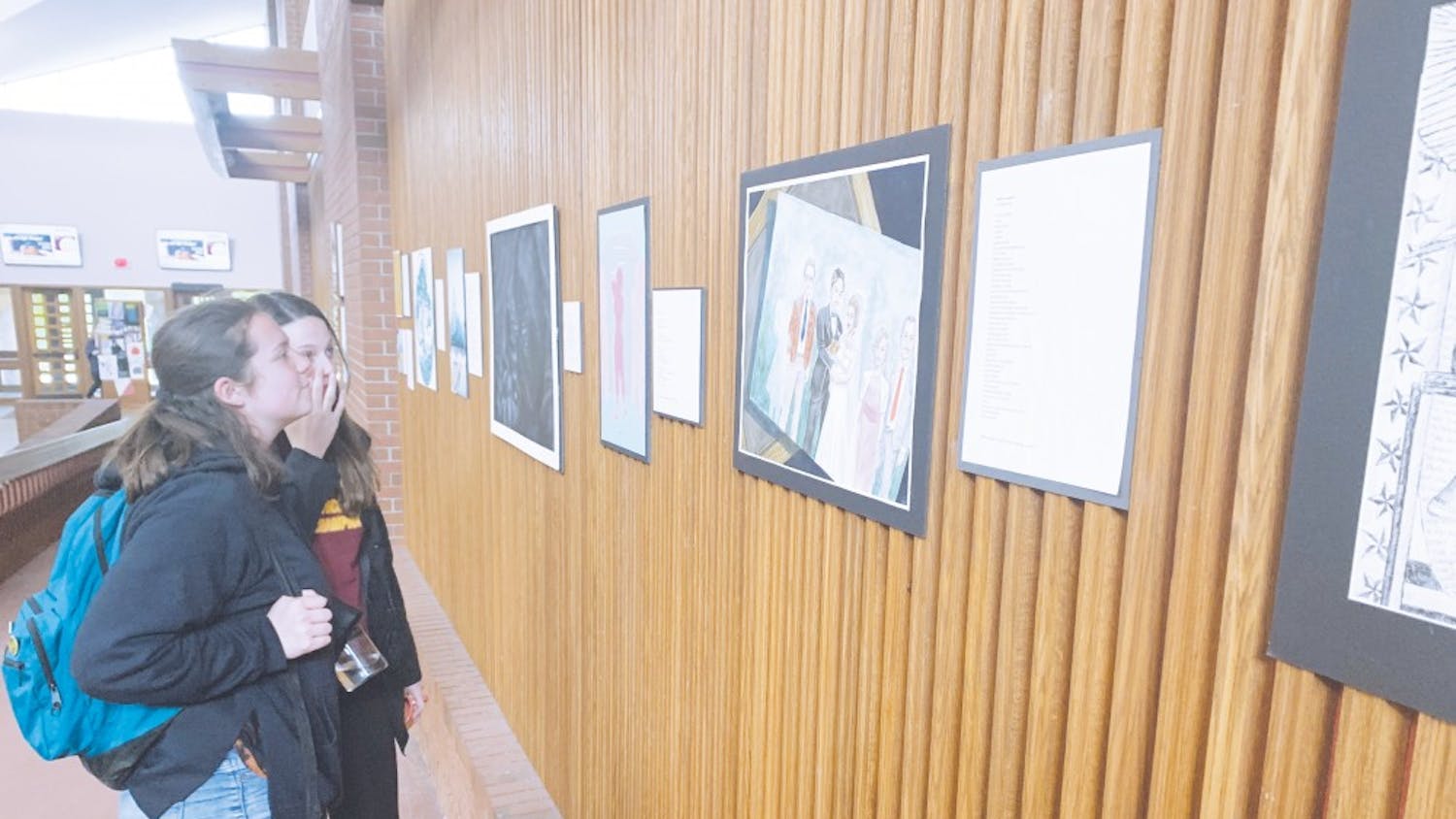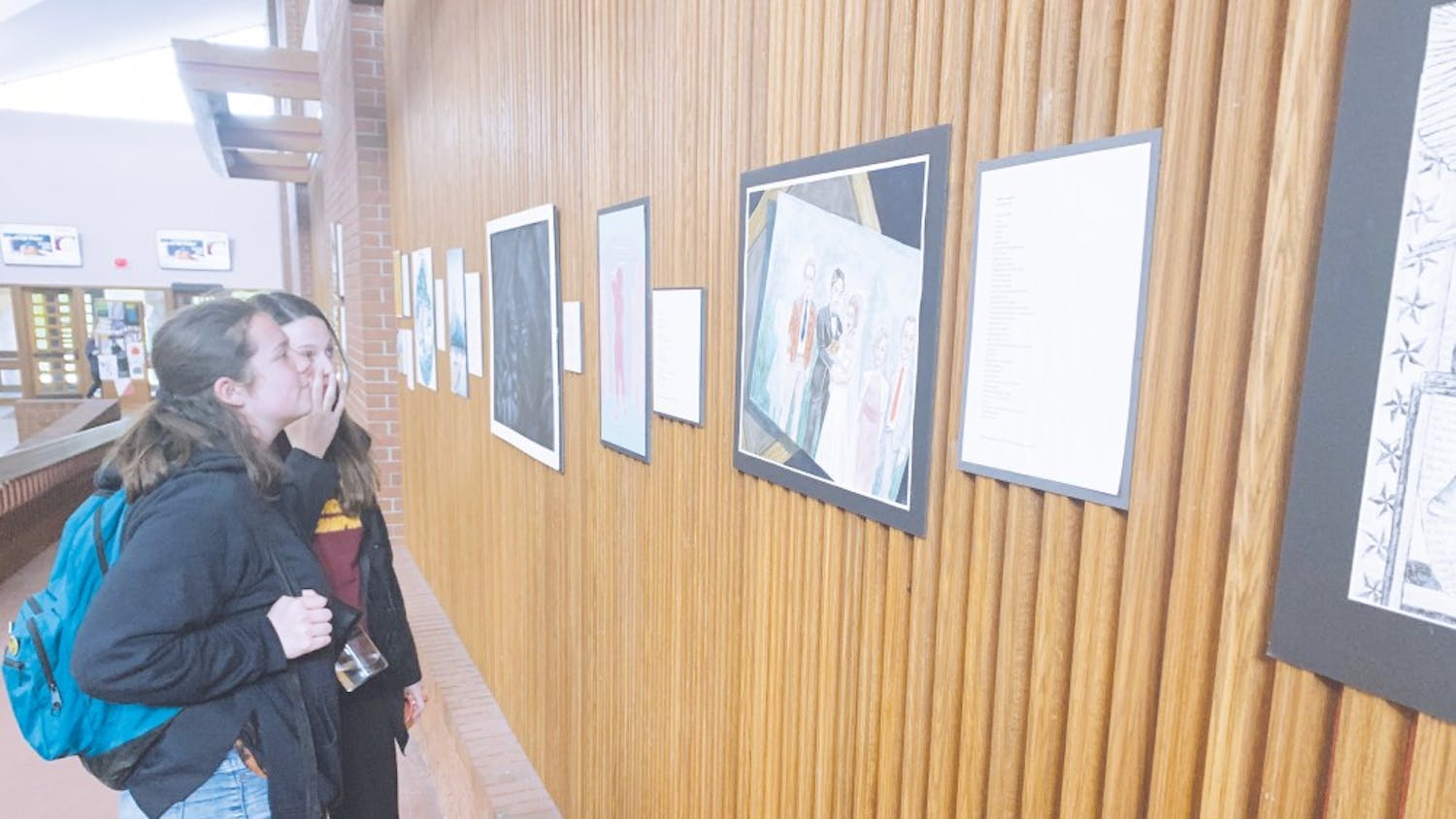By David Seaman | Echo
"People shouldn't go to plays. They should spend time looking in the mirror, at their gray lives and pointless conversations."
These are the words of Madame Ranevskaya in "The Cherry Orchard," the last play of famed Russian playwright Anton Chekhov. Under the direction of Tracy Manning and the skills of talented actors, Ranevskaya is proved wrong. "The Cherry Orchard" is a play you should go to, one where gray lives and pointless conversations are acted out in meticulous detail and emotion.
Set in 20th century Russia, the play follows Madame Ranevskaya as she returns to her estate after years living in Paris after her son's death. She arrives and reunites with her brother Gayev and others, including adopted daughter Varya, who has overseen the estate in Ranevskaya's absence.

Yermolai Lopakhin, a wealthy merchant and former servant of the family, comes to remind Ranevskaya that her estate, including the cherry orchard, will be up for auction soon to pay off family debts. He suggests moving the estate and removing the orchard; the family insists their debts can be paid. Ranevskaya soon realizes, however, that Russia has changed; her aristocratic class is not what it used to be. She and the group's actions, or lack thereof, drive the plot of "The Cherry Orchard."
Chekhov originally intended his play to be a comedy, a farce. His friend Constantin Stanislavski performed it as a tragedy. As a result, productions have had to struggle with presenting a dual nature. Taylor's production succeeds in presenting "The Cherry Orchard" as a tragicomedy. Some scenes are certainly poignant, such as when Ranevskaya reminisces on her lost son. Others are played quietly and surreally, showcasing irony, farce and absurdity. Many scenes are a mix of the two, such as when Lopakhin reveals who has bought the orchard. There's a fair share of dry humor as well; servant Yasha gets some of the best lines in his disdainful reactions to his masters.
Once again, Taylor Theatre continues its tradition of excellent acting. Everyone is believable in their roles, and while some Russian accents are more pronounced than others, the actors pull them off. Senior Thatcher Ritz plays Lopakhin as a troubled character. A child of servants, he really does not want to deal with the orchard, but he must do what is necessary in order for the estate to go on. Senior Christina Goggin is mature and sometimes manipulative as Ranevskaya. Junior Zachary Cook makes the audience believe he is an old and wary butler, and senior Stephen Newhall has some entertaining moments as the drunken Pishchik.
Underclassmen also impress; sophomore Carter Perry is inconsiderate and cruel, a reversal of his role as a smooth actor in last semester's "Kiss Me, Kate." Freshman Andrew Davis has a confident facade but vulnerable interior as young socialist Peter Trofimov (at one point he gives a speech that will serve him well come the Bolshevik Revolution). Freshman Tommy Weber impresses as Yepikhodov, the clumsy suitor for servant Dunyasha.
The set is a thing of beauty. Most of the action takes place on top of a cherry tree stump, and the set becomes almost a character in itself, listening to the characters' conversations. Surreal green, blue and pink lights add wonderful color to a sunset or sunrise. From the stump, to the trees, to the light in the background, the set feels authentic. Scene transitions make exquisite use of light and fog to enhance the mood, and sounds and music have an eerie feel.
Chekhov liked exploring heavy topics, and there are many to take in here. Thoughts on happiness, memories and social change are all examined. But perhaps the most important theme is listening. People walk in and out of conversations, missing key expressions, feelings and information. Unexpected heartbreak and surprise develops out of lack of communication. Ranevskaya does not listen to reason, Yasha does not hear and chooses to ignore Dunyasha's pleadings of love. Even Lopakhin, seemingly the wisest person of the play, fails to listen to his own heart. "The Cherry Orchard" reveals the consequences of failing to listen, and this-along with deft direction and an outstanding cast-is what drives the play.
"The Cherry Orchard" will run this weekend with performances at 8 p.m. Friday and Saturday, along with a matinee at 2 p.m. this Sunday. The play will also run at 8 p.m. on February 28 and March 1 and at 2 p.m. March 2. Tickets cost $7 for Taylor students, $10 for employees and non-Taylor students and $12 for adults. They can be purchased at the theater box office located in Rupp.
(Thumbnail photograph by Micah Hancock)





